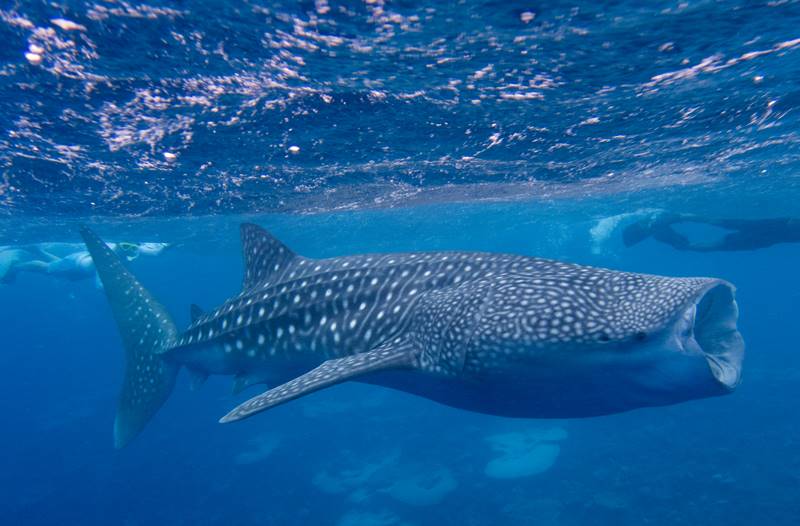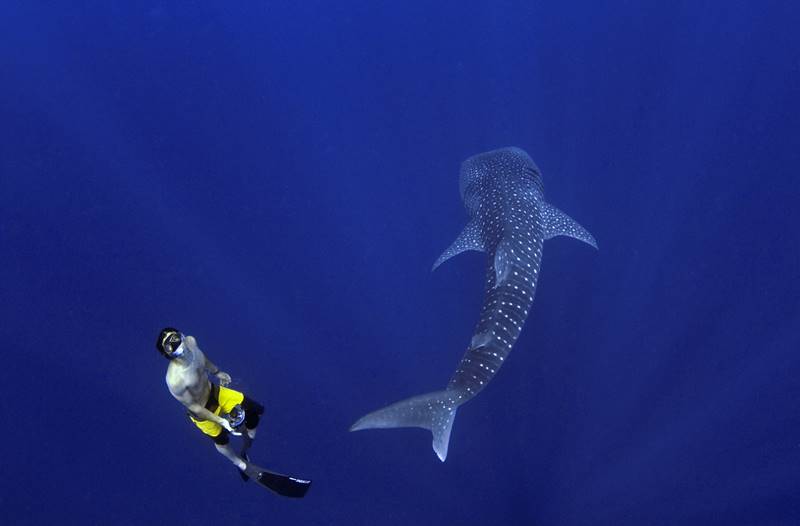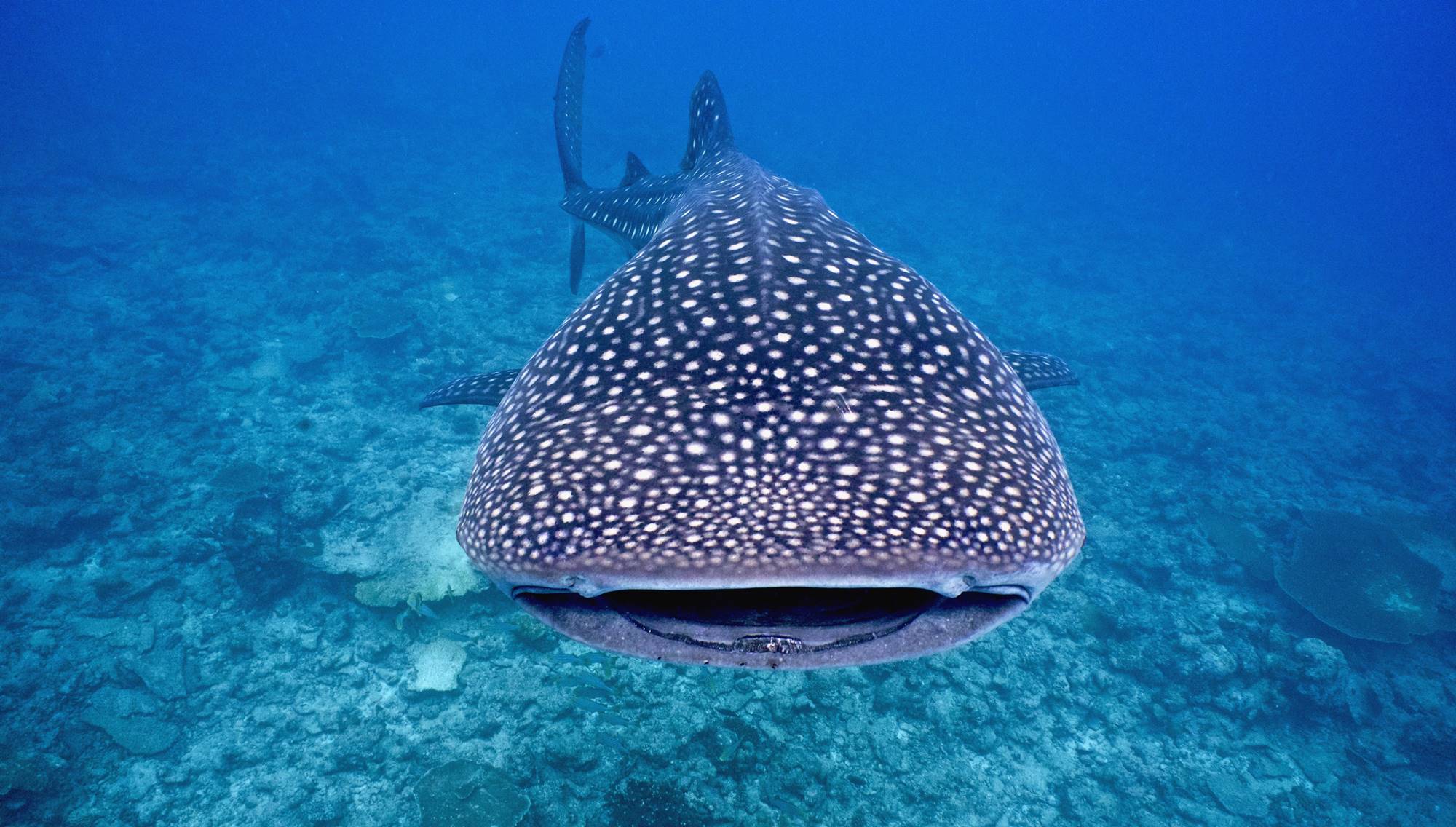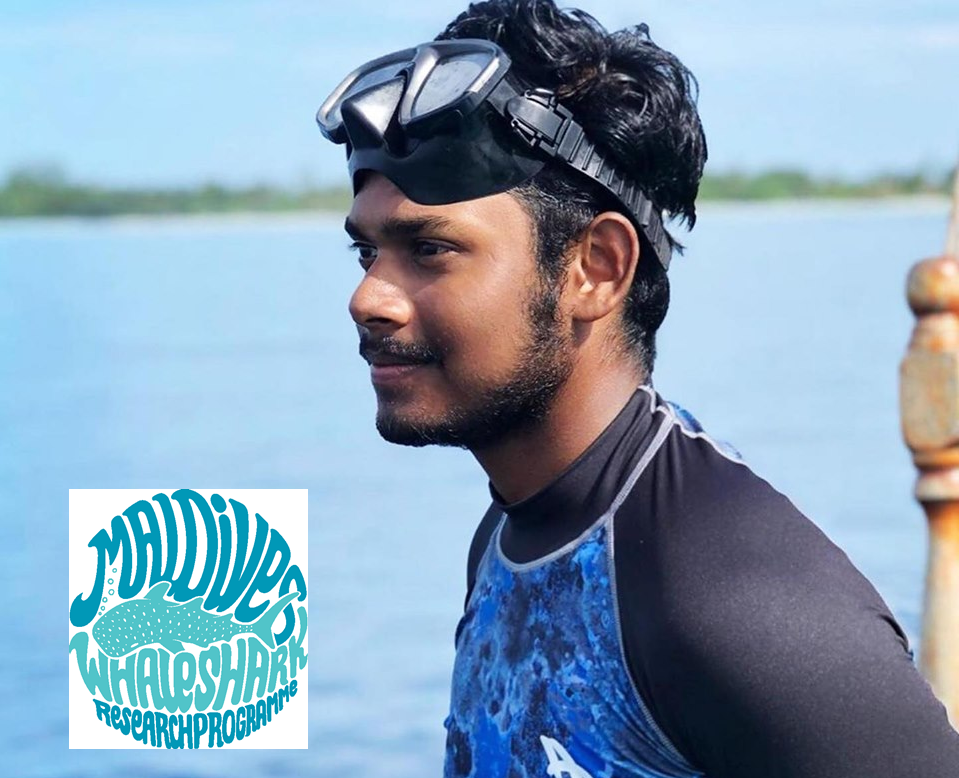
Fundraising target: £2,100 +
Funds donated: £3,500
Project: People Project – to increase the number of Maldivians involved in marine science and conservation. This is one of 21 projects nominated for our 21 For 21 programme.
21 For 21 Project Partner: Maldives Whale Shark Research Programme
The Maldives Whale Shark Research Programme (MWSRP) is a research-based conservation charity dedicated to studying the whale shark and fostering community-focused conservation initiatives in the Maldives and the greater Indian Ocean.
Find out more about The Maldives Whale Shark Research Programme. Set up a 21 For 21 Fundraising Page.
About the Maldives Whale Shark Research Programme
MWSRP has grown to become the only long-term organisation dedicated to studying whale shark species in the Maldives. It was founded on the aim of understanding the population dynamics of the whale sharks in the Maldives and how this fits into the species’ existence in the wider world.
MWSRP seek to advance the field of whale shark knowledge and to advocate for sound conservation policy in the Maldives. By encouraging and valuing community and industry stakeholder participation, they are able to leverage the scientific research to safeguard the rich biodiversity and fragile marine ecosystems that are the basis for not only whale sharks, but also life, livelihood and culture in the Maldives.
Research projects focussing on movements, size, sex, threats and the influence of environmental factors such as lunar cycles and their accompanying tides all being undertaken. In 2009, MWSRP’s work on the core habitats of this species helped provide the baseline data needed for the creation of the Maldives largest protected area- the South Ari Marine Protected Area.
Whale Sharks
Whale sharks, the world’s largest living fish, are listed as Endangered. An IUCN Red List assessment revealed that growing human pressures on whale sharks have put the species at an increasing risk of extinction. Numbers of whale sharks have declined by more than 50% over the last 75 years.
These gentle ocean giants, which can be identified by their unique spot patterns, and are filter-feeders, feeding almost exclusively on plankton, cover vast distances. Large aggregations of whale sharks is an indication of large numbers of plankton and in turn a healthy ocean environment.
Whale sharks do not reach maturity until they are eight to nine metres and it is believed they may live for as long as 100 years. They are slow moving and for feeding and thermoregulation they can spend as much as half their time at the ocean’s surface making them vulnerable to boat strikes.
Their meat, fins and oil are prized by fisheries while bycatch is also a threat – when they are unintentionally caught or tangled in fishing gear. They were added to Appendix II of the Convention on International Trade in Endangered Species of Wild Fauna and Flora back in 2003 in an effort to regulate international trade.
In addition, unregulated ecotourism poses a growing threat. In some destinations, whale shark encounters are sold as a bucket list experience rather than a conservation experience. In pursuit of a close encounter, and by not following proper protocol, people can all too easily interrupt feeding and cause stress to the sharks.
How to Swim with Whale Sharks – coming soon
People Project Internship
In the Maldives, a country where just 0.03% of the surface area is land and whose seas are considered some of the richest and most biodiverse on
the planet, the opportunity to work in marine sciences or conservation is almost non-existent. For many young Maldivians, marine sciences or conservation is not seen as a viable job.
The MWSRP first became aware of this situation when looking to recruit a local marine scientist to work in the field helping to collect data on whale
sharks. It was apparent that the pool of experienced talent was very small, but the interest in the position was huge. The internship programme aims to inspire young Maldivians to take the lead in the preservation of their unique environment.
The 3 month immersive programme starts with a few weeks settling in, reading up and being taught about shark and general marine biology and field data collection skills. Interns gradually progress to being placed in the foreground of both data collection and presentation of information to others. As part of an international team and under the guidance of an experienced field researcher, they are eventually fully exposed to life as a marine scientist.
The internship programme has had some outstanding results: a 2012 intern went on to join the IUCN and progressed from an entry role to a policy advisor. A 2013 intern still works with MWSRP as the Outreach Coordinator. A 2015 intern landed a role in the Ministry of Fisheries and Agriculture and a 2016 intern worked for a year with MWSRP before progressing to higher education overseas. A 2017 intern is now the lead infield coordinator of MWSRP.
21 For 21 Funding will support a 3 month internship with MWSRP.
Images courtesy of Melody Sky, Jil Kuhne and MWSRP
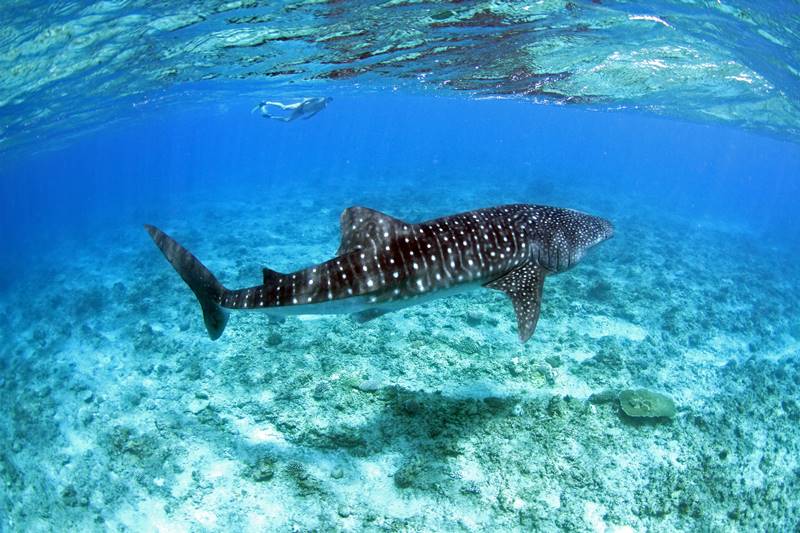
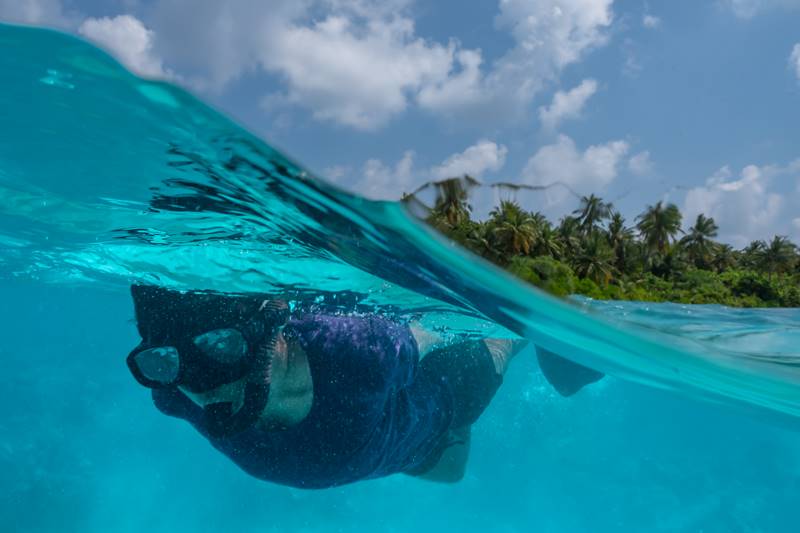
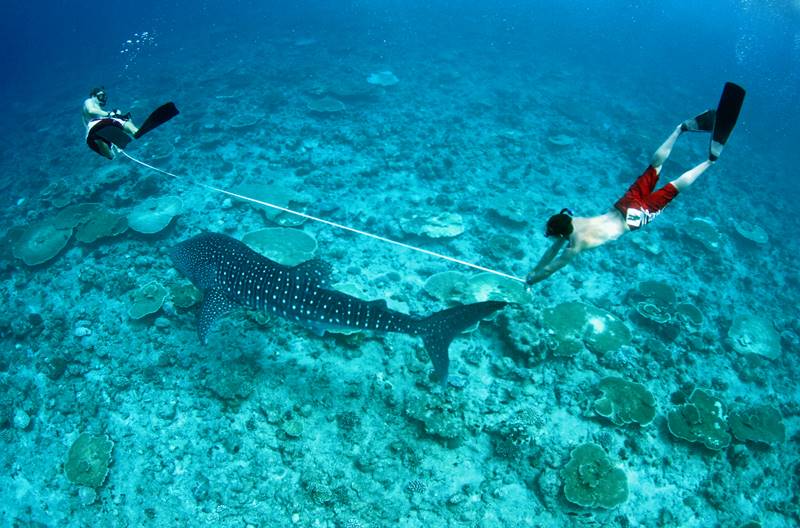
Whale Shark, Maldives
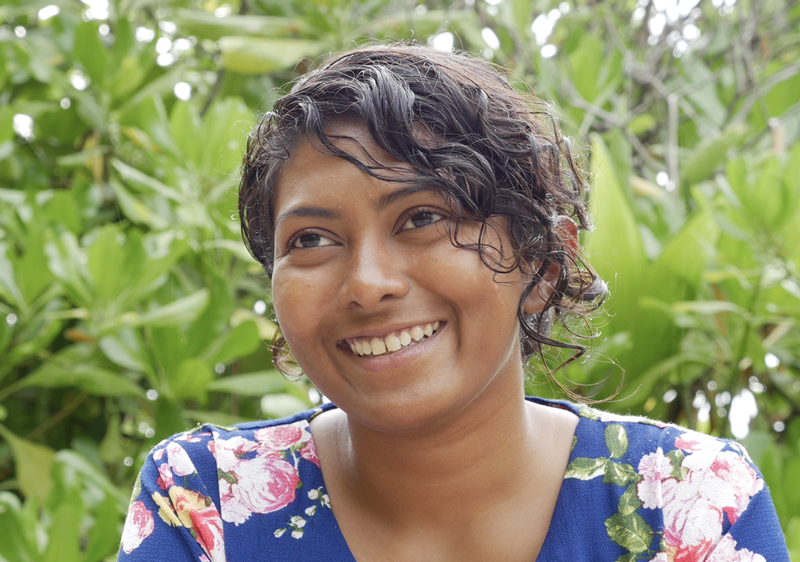
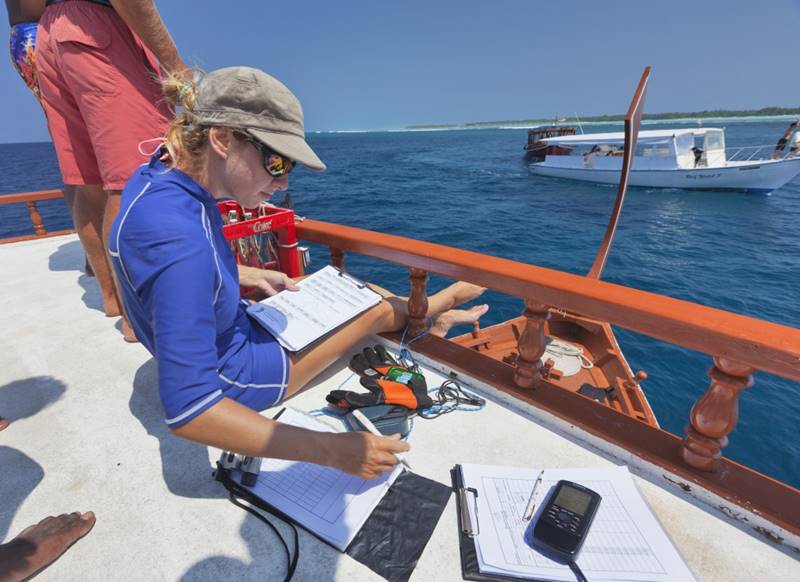
All funds raised during 2021 will contribute to the 21 For 21 Project Fund so please do sign up for a sponsored challenge (details here), support our creative initiatives, or make a donation if you are able to. Every Pound makes a difference. Thank you.
